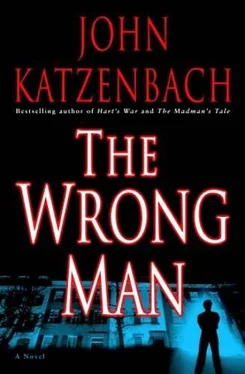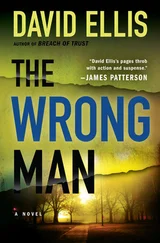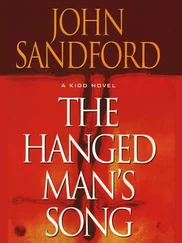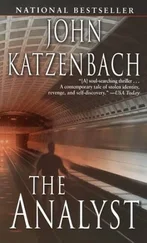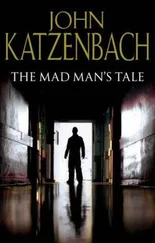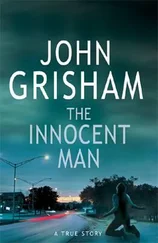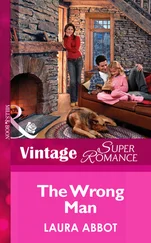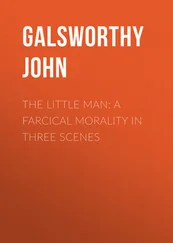Hope remained frozen in her seat, until she imagined she appeared so obvious that wearing fake glasses would be irrelevant. She glanced down at Murphy’s report, took another long look at the photograph of O’Connell that accompanied it, and wondered whether she would actually be able to recognize him. Not knowing what else to do, she pushed open the car door, stepping out onto the street.
She stole a look toward Michael O’Connell’s address, wishing that it would become dark enough so that she could see him turn on a light in his apartment, then realized that by staring she was far more likely to allow him to see her than she was to see him. She turned and rapidly walked down to the end of the block, imagining a set of eyes boring into her back. She turned the corner and stopped. What precisely was the purpose of staking out his apartment if the first thing she did was quick-march directly away from it?
She took a deep breath and felt utterly incompetent.
Useless, useless, she said to herself. Go back, find some spot in an alley or behind a tree, and wait him out. Have as much patience as O’Connell does.
Shaking her head, she turned and walked back around the corner, her eyes scanning the block for some spot to hide, and saw O’Connell exiting his building. He had his head back, and he was grinning, exuding a jauntiness and evil that infuriated her. She was angry; it seemed that he was mocking her, when, of course, there was no indication that he even knew she was there. She slid sideways, trying to huddle against a wall, hoping to avoid making eye contact, but still watching him. At the same moment, she saw a small, wizened elderly woman weave her way down the block, on the same side of the street as Michael O’Connell. As soon as he spotted her, Hope saw him scowl. The look on his face frightened Hope; it was as if O’Connell had transformed himself in a split second, going from devil-may-care nonchalance to intensely furious.
The old woman seemed the very definition of harmless. She was moving along painfully slowly. She was short and stumpy, and wore a dowdy black wool overcoat that was probably twenty years old and had a multihued knit hat on her head. Both her hands were gripping white plastic grocery bags, weighed down with foodstuffs. But Hope could see the old woman’s eyes flash as she spotted Michael O’Connell, and she swayed slightly in her path to block his route.
Hope clung to a tree across the narrow street from where O’Connell and the old lady confronted each other.
The woman tried to lift a hand, still clutching the grocery bag, and waggled a finger in his direction.
“I know you!” she said loudly. “I know what you’re doing!”
“You don’t know shit about me,” O’Connell replied, his own voice raised.
“I know you’re doing something to my cats. I know you’re stealing them. Or worse! You are a nasty, evil man, and I should call the police on you!”
“I haven’t done anything to your damn cats. Maybe they’ve found some other crazy old woman to feed them. Maybe they don’t like the food you leave out. Maybe they just found better accommodations elsewhere, you old bitch. Now leave me alone, and be careful that I don’t call the health authorities on you, because they will sure as hell seize all those mangy goddamn cats, take them all out, and kill them.”
“You are a cruel, heartless man,” the old woman said stiffly.
“Get out of my way and go screw yourself,” O’Connell said as he pushed past the woman, and continued to saunter down the street.
“I know what you’re doing!” the old woman repeated, shouting after him.
O’Connell turned, staring back at her. “Do you now?” he answered coldly. “Well, whatever it is you think I’m doing, you’re lucky I don’t decide to do the exact same thing to you.”
Hope saw the old woman gasp and step back as if she’d been struck. O’Connell grinned again, clearly satisfied with his response, and pivoted, heading rapidly down the street. Hope did not know where he was heading, but knew she should follow him. When she turned back to the old woman, frozen in position on the sidewalk, she got an idea. As Michael O’Connell turned the street corner at the end of the block, Hope launched herself toward the woman.
Glancing to make certain that Michael O’Connell had disappeared, Hope gestured toward the elderly woman. “Excuse, me, ma’am,” she said as gently as she could while still getting the old woman’s attention. “Excuse me…”
The woman turned warily toward Hope. “Yes?” she asked cautiously.
“I’m sorry,” Hope said rapidly. “I was on the other side of the street and I couldn’t help but overhear the words you had with that young man.”
The woman continued to eye Hope as she closed the distance between them.
“He seemed very rude and disrespectful.”
The old woman shrugged, still not sure what Hope was getting at.
Hope took a deep breath and launched her lie.
“My cat, a really cute calico, with two white front paws-I call him Socks-has been missing for a couple of days. He’s lost and I just don’t know what to do. It’s driving me crazy. I live just a block or two over.” Hope waved in a general direction indicating virtually all of greater Boston. “And maybe you’ve seen him?”
In truth, Hope didn’t like cats. They made her sneeze, and she disliked the way they looked at her.
“He’s such a cutie, and I’ve had him for years and it’s not like him to be gone this long.” The lies tripped easily off her tongue.
“I don’t know,” the old woman said slowly. “There are a couple of calico cats in my collection, but I don’t recall any new ones. But then…”
The woman’s eyes slipped off Hope and stared in the direction that Michael O’Connell had disappeared. She hissed, almost like one of her charges.
“I can’t be sure he hasn’t done something evil.”
Hope adopted a stricken look. “He doesn’t like cats? What sort of person…”
She didn’t need to finish. The old woman took a small step back and looked Hope up and down, sizing her up. “Perhaps, you would like to come in, have a cup of tea, and meet my children?”
Hope nodded as she reached down to carry the woman’s grocery bags. I’m in, she thought. It felt like being invited to stand next to a dragon’s lair.
Scott sighed and stared out at the faded cinder-block and redbrick, low-slung high school and imagined that the same person who had designed it probably also designed prisons. A line of yellow school buses parked in front, engines running, filled the air with a distinctly harsh diesel smell. A frayed American flag had twisted around the flagpole, tangling up with the state flag of New Hampshire. Both flapped spastically in the stiff breeze. To the side was a high, rusty chain-link fence. A marquee out front carried two messages: GO WARRIORS! and SAT/ACT TESTS SING UP NOW. No one seemed to have noticed the misspelling.
Scott, too, had a copy of Matthew Murphy’s report stuffed inside his suit coat. It only hinted at the bones of Michael O’Connell’s past, and Scott was determined to put flesh to those few words. O’Connell’s high school had been as logical a place as any to start, even if their information would be ten years old.
He had spent a depressing morning surveying the world where O’Connell had grown up. Coastal New Hampshire is a place of contradictions; the Atlantic Ocean gives it great beauty, but the industry that leeched near the land where rivers empty into the sea was stolid and heartless, all smokestacks and rail stations, warehouses and smelting plants that worked around the clock. It was a little like staring at a far-too-old stripper working a down-and-out club in the middle of the day.
Читать дальше
